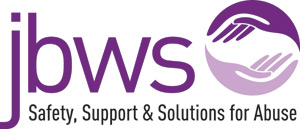“Machismo refers to an overly exaggerated way of being a man and of viewing masculinity in Hispanic or Latinx cultures,” says a group facilitator for Spanish speaking clients at JBWS’ Jersey Center for Non-Violence (JCNV). “It’s this belief that if you’re the man of the house, then you hold the power and you’re the one to put others in their place.”
Many Spanish speaking group members involved in JCNV’s ACT program, or a 26-session group designed for men who have used abuse, subscribe to the notion of machismo. It is so common that facilitators have replaced references to male privilege with machismo on the traditional power and control wheel.
“In group, we talk a lot about machismo, their upbringings, and the differences between men and women,” explains a JCNV staff member. “We’ll talk about how men view themselves in relationship to their partners or how they seem themselves versus their female siblings.”
Throughout the ACT program, group members reflect on their own examples of masculinity, reflect on what it really means to be a man, and reconsider their relationship to their own emotions – potentially for the first time.
“Groups members will say they didn’t even know that there were feelings other than aggression and anger. They didn’t know that going outside, taking a walk, or calming down before continuing a heated conversation with your partner was possible,” says a JCNV staff member. “They thought that they had to react immediately to be the man of the house.”
However, as group members attend sessions, they begin to realize that they do not need to act in specific ways to be a man. They start to recognize that they can be strong but empathetic, decisive but slow to anger, and provide for their family while also willing to accept help. The group further challenges notions of machismo by having both a female and male facilitator for each group.
“There is a huge positive power to having a male and female facilitator together because we model respectful communication,” says a JCNV staff member. “We tell our group members that we’re respecting you and we expect that respect back.”
If you’re interested in learning more about JCNV, visit jbws.org/jcnv
To learn more about how abuse presents in the Latinx community visit here.
